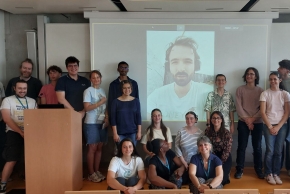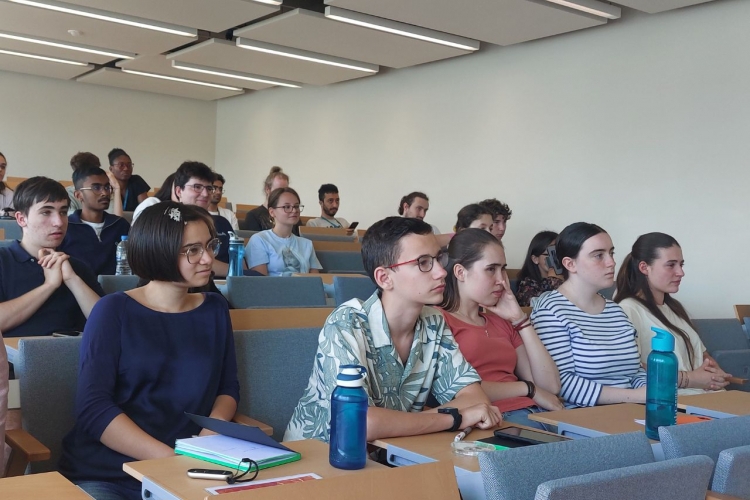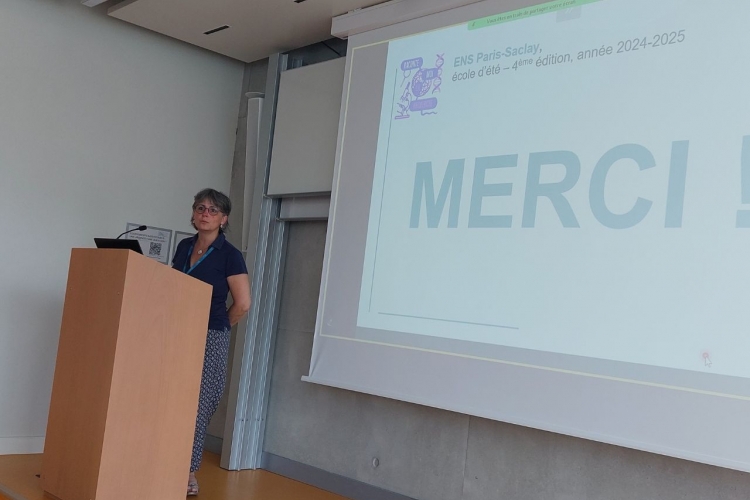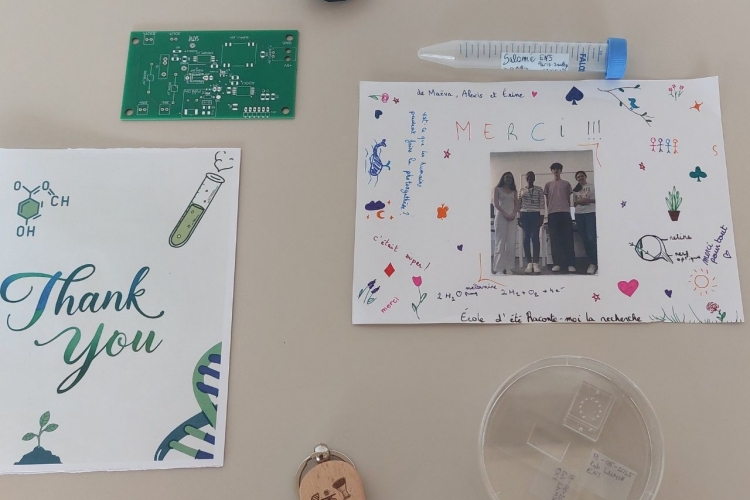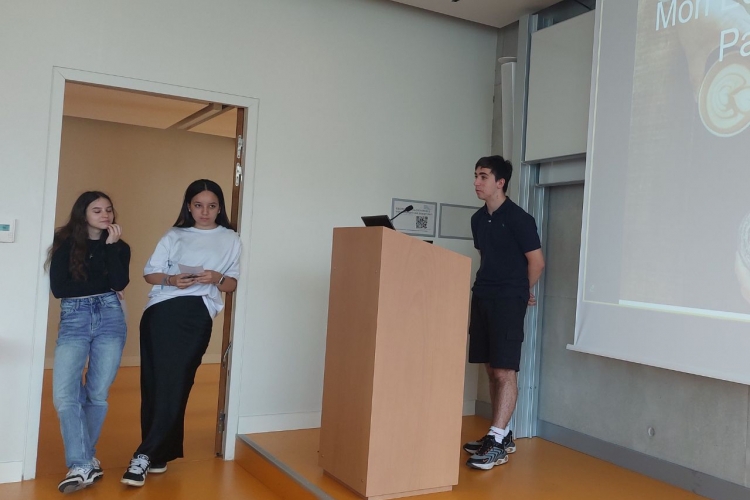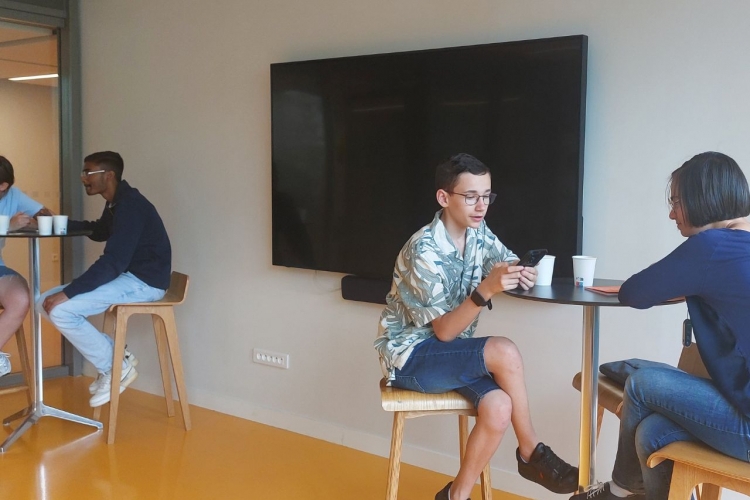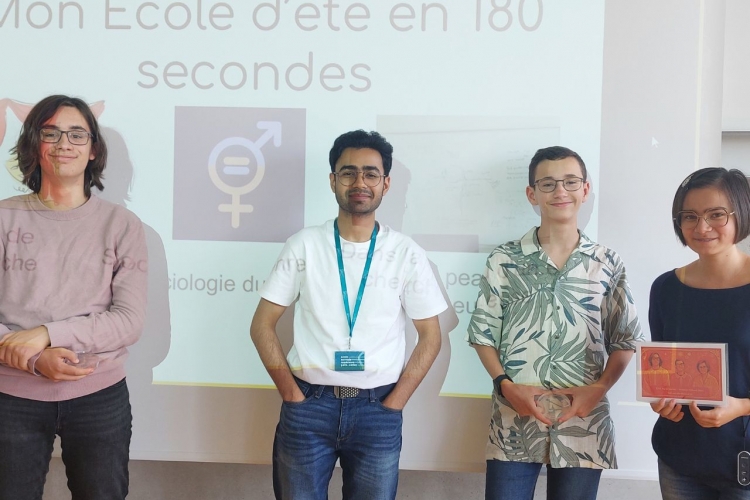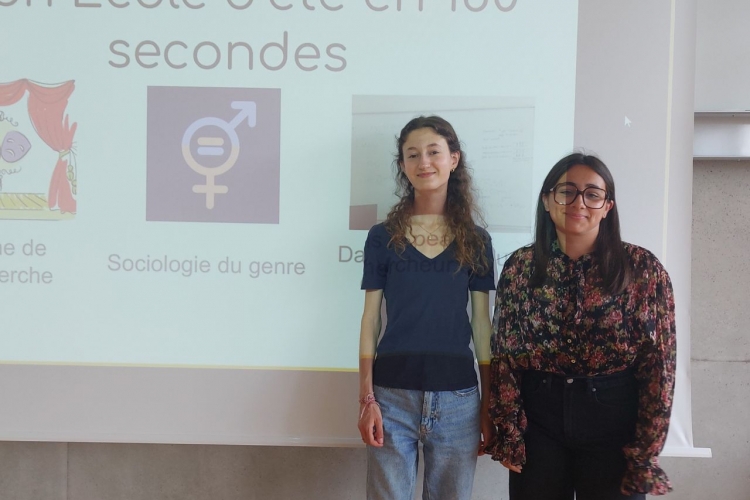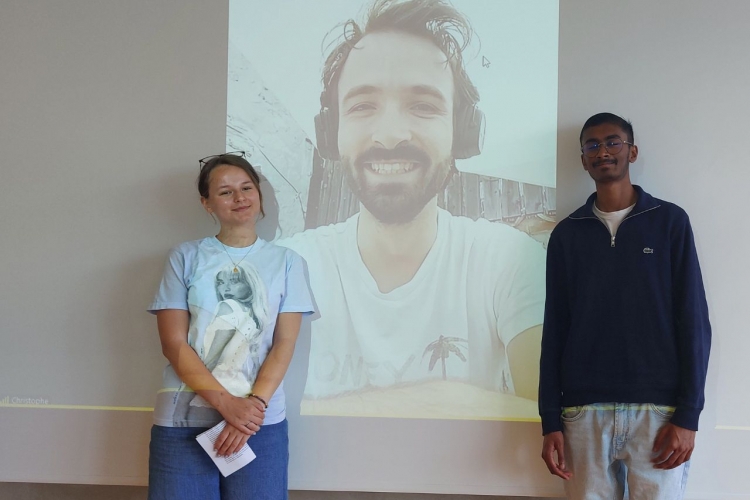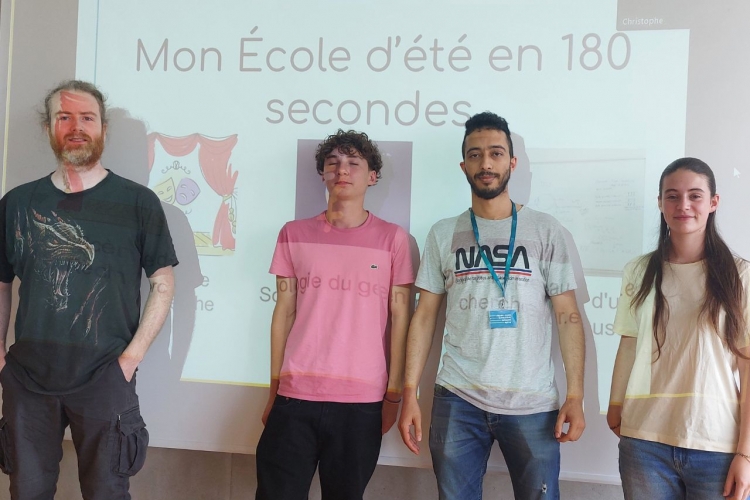Summer school program: workshops and discussions with researchers
This week’s program:
- Individual tutelage thanks to 7 volunteer PhD students in a variety of fields;
- Interactive conferences on gender stereotypes and heritage in science;
- A discovery of the Scène de recherche, a place for artistic and scientific experimentation
- The “My Summer School in 180 Seconds” challenge, an exercise in summarization, and public speaking;
- Three key speeches by the School’s vice-presidents:
- Philippe Maître, vice-president in charge of research, explained the key role played by research at the ENS Paris-Saclay, as well as the strength of its alumni network;
- Olivier Hubert, vice-president in charge of teaching, presented the rich and varied panel of academic programs at the School, as well as the different ways of being accepted there;
- Anne Peyroche, vice-president in charge of budget and strategy, shared her personal experience as well as precious advice on perseverance, opportunities, and what it means to work in research. She also showcased the many actions undertaken by the School to foster the transmission of knowledge, of which the Summer School program is a shining example.
Before discovering the laboratories, the high schoolers were invited to a scientific breakfast, punctuated by quotes chosen by researchers. Each one introduced themself with their choice of quote about science, revealing their curiosity, their critical thinking skills, and their personality.
Throughout the week, the high schoolers worked in small groups under the tutelage of a volunteer PhD student. Each group had the opportunity to discover two different laboratories with two PhD students with complementary academic careers. This was a new way to engage with a variety of fields, research methods… and the people who push science forward every day. Even coffee breaks were crucial moments: to discuss, question, share observations about the everyday life of researchers—like pedagogical pauses throughout this immersion.
Valérie Peris Delacroix, in charge of this project at the ENS Paris-Saclay, shares her thoughts on this stimulating and rewarding experience:
I was thrilled to be invited to lead this Summer School program, as I believe that such experiences are what spark callings in young minds. It is a fascinating, meaningful project, which gives us faith in the future of these young students. I loved seeing the enthusiasm and sense of a bigger picture the students walked away with at the end of the week.
Words from the high schoolers on this experience, in 3 minutes or less
On Friday morning, the high schoolers were met with a new challenge: sharing their experience in 180 seconds or less, in the spirit of the “My Dissertation in 180 seconds” competition. Each individual speech started with their initial motivation to join this program; then, the students shared a personal account of the week, which they illustrated with what they felt were the most impactful moments; finally, the students concluded with a reflection on what this program would bring them in their future studies.
These final speeches were varied, touching, and often inspiring. Here are a few snippets:
- Benjamin, senior student at the Franco-German high school of Buc (78): “Research is a human adventure. We all come from different places, but we move forward together. I want to remember the values this program taught me: curiosity, humility and the will to share.”
- Mathilde, junior student at the same school: “I never thought about doing research… and now I want to! I discovered a fascinating field, but what will stay with me will be the discussions we had with the PhD students.”
- Salomé, junior student at Lucien de Hirsch high school (Paris): “I like that, in research, you can study things you don’t already know much about. Regardless of what brought you there, what counts is your drive and passion.”
- Hugo, junior student at Michelet high school (Nice): “I wanted to challenge my misconceptions about research. I learned, I explored, and I now walk away with even more questions. It broadened my horizons.”
- Juliette, junior student at Lacordaire high school (Marseille): “Science isn’t a race, it is a living, fascinating adventure for those with a curious mind. Research doesn’t start in college, it starts with a question. This week strengthened my motivation to be accepted at the ENS Paris-Saclay.”
- Gabriel, junior student at la Vallée de Chevreuse high school (Gif-sur-Yvette): “I know I won’t be heading into research. But now, I am happy to know exactly why.”
- “Alexis, first year student at Palaiseau high school: “I want to become a researcher in medicine. This week, I discovered that even research papers seem useless can be deemed precious years down the line.”
An end of the week marked by thankfulness and sharing
To conclude this week, the high schoolers decided to thank their PhD student chaperones by giving them customized souvenir cards. A simple yet meaningful gesture, rewarding the dedication and availability of these young researchers throughout the program. A word cloud based on the high schoolers’ final speeches was also revealed, composed of strong concepts: perseverance, curiosity, wonder, sharing, encounters… a testament to the importance of the program, and the leading principle of the school: sharing science as a human adventure.
This Summer School was made possible thanks to the support of the Qube Research & Technologies charity fund, whom we thank for their unwavering support and efforts in favor of transmitting science among young students, and making research accessible to all.
Do you wish to support the School’s future projects? Contribute to the development of such programs at the School by making a donation today.
